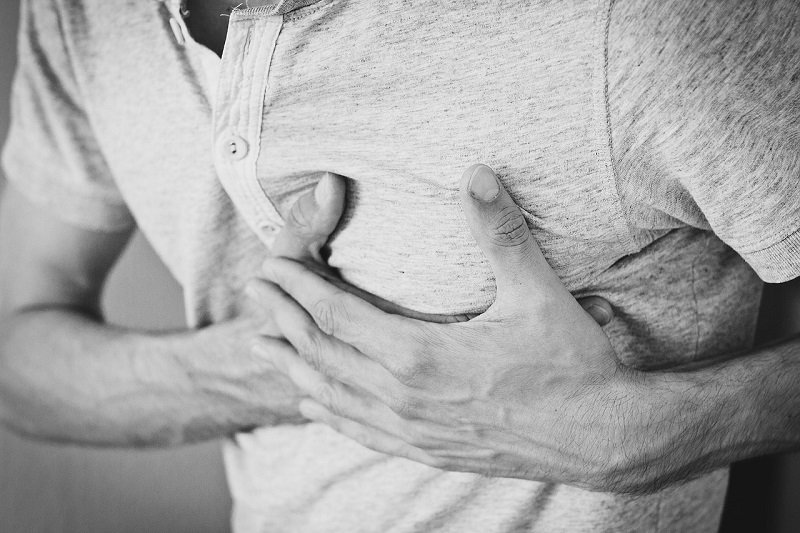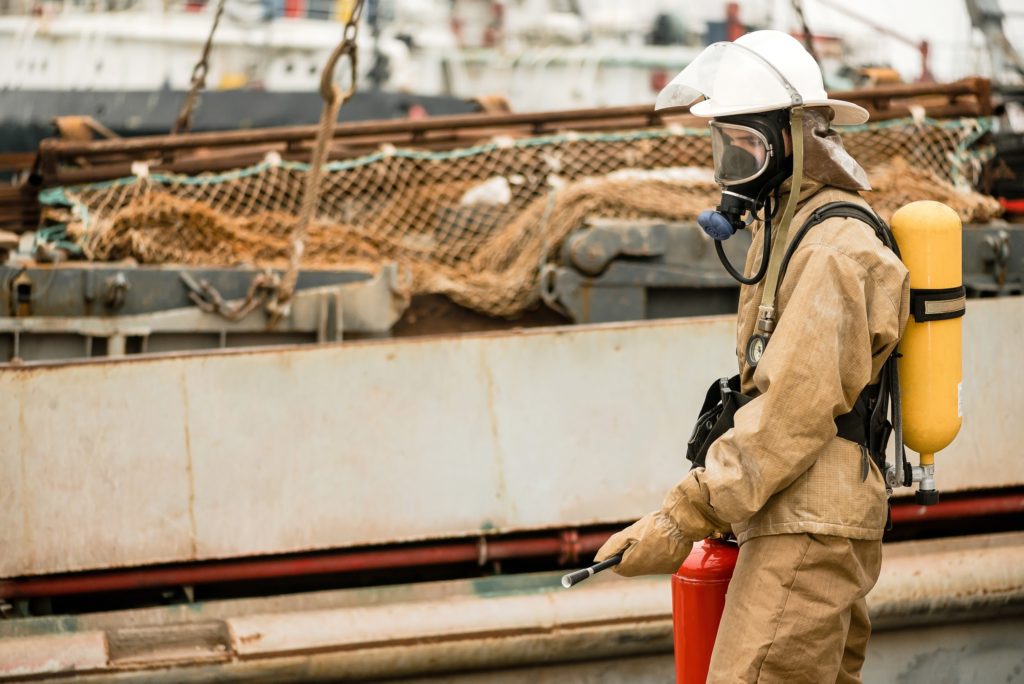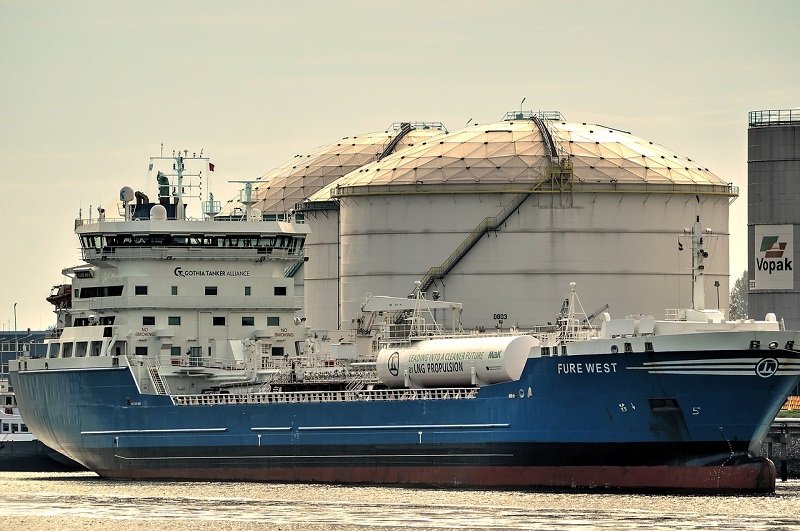Maritime workers must face hazardous conditions on a daily basis. To add to this, working at sea can also result in exposure to harmful chemicals, which can cause significant injury. How are maritime workers exposed, what can happen, and how can you know if you need a maritime attorney to get you compensation in court? We answer these questions and more.
What Is a Hazardous Chemical?
Hazardous chemicals are any that can cause negative health effects. These effects can either be acute (short-term) or chronic (long-term). The classes of hazardous chemicals that maritime workers may be exposed to on the job can include corrosives, irritants, and carcinogens.
What Kinds of Chemicals Can Maritime Workers Be Exposed To?
Depending on the kind of work you do while at sea, you may have been exposed to a range of different chemicals on the job. The severity of an injury as the result of exposure to hazardous chemicals depends on:
• Which chemical a worker was exposed to
• Amount of the chemical
• Strength of the chemical
• How frequently exposure occurred
• Length of overall exposure time
Generally speaking, there can be any number of chemicals on board a ship at any given time. A supply of gasoline, diesel, and crude oil is necessary to keep vessels going, but they also contain toxic chemicals and emit noxious fumes. Acetone, toluene, and benzene are all solvents that are used for cleaning, as are detergents and disinfectants.
Which chemicals a maritime worker can be exposed to depends on the job they do. Exposure can also occur as the result of chemicals that aren’t used on the job but being transported by the ship. Other chemicals maritime workers can be exposed to include:
• Arsenic, cadmium, and other toxic metals
• Degreasers
• Chlorine
• Pesticides
• Refrigerants
• Insulation
• Benzene
• Ammonia
How Can You Be Exposed to Maritime Chemicals?
Ingestion of chemicals can occur in a number of ways. Contact with the skin, ingestion, or inhaling chemicals can all cause significant injury. Skin contact can cause burns, dermatitis, and serious skin disease. Ingestion and inhalation of chemicals can result in injury to the throat, nose, and eyes and result in cancer, bronchitis, lung and brain damage, and neurological injury.
Certain chemicals can also affect fertility, cause birth defects, and compromise the immune system, leaving one vulnerable to other infections. The severity of an injury depends on the previously mentioned factors.
Skin Contact
Following skin exposure to chemicals, you may feel a burning sensation on your skin, or it may become red and irritated due to an allergic reaction. Certain chemicals may cause infections once absorbed, while carcinogenic chemicals may cause skin cancer. Soft tissue, such as can be found in the nose and eyes, can also be damaged by contact with the fumes from some chemicals.
Ingestion
Accidentally swallowing hazardous chemicals can cause damage to the lining of the throat and stomach, as well as the intestines. Some chemicals are not able to be broken down by the body, and so they remain, causing damage and injury to organs over the long term. Others will damage major organs as they pass through the body.
Inhalation
Breathing in any toxic chemical can result in burns to the throat, mouth, airways, and lungs. If the chemical was an asphyxiant, you may not be able to breathe. The resulting lack of oxygen can begin damaging the brain after one minute if the oxygen supply is not restored. Inhalation of chemicals can also cause various types of cancer.
How to Know if You Were Exposed to Hazardous Chemicals
The effects of exposure to some hazardous chemicals may not be apparent in the beginning. As well, depending on the way in which exposure occurred, you may experience various sets of symptoms. Some of the symptoms you may not associate with chemical exposure can include:
• A skin rash
• Feeling dizzy or lightheaded
• Severe headaches
• Coughing or wheezing
• Fatigue
• Body aches
• Feeling nauseous or vomiting
Other symptoms of exposure can be more obvious and also more acute, such as:
• Problems with the liver, kidneys, or lungs
• Serious chemical burns
• Blood in saliva or mucus
• Breathing problems
• Chest pain
• Burning sensation in the throat, nose, and eyes
Types of Damages That Can Be Awarded
Two main types of damages that can be awarded in a maritime chemical exposure case are punitive and compensatory.

Punitive Damages
Punitive damages are awarded in instances where the defendant’s behavior was shockingly bad. Not only do punitive damages allow plaintiffs to collect a potentially sizable amount of compensation but, in awarding them, a message is sent to others who may be considering getting away with the same actions.
Compensatory Damages
Compensatory damages are awarded in both monetary and non-monetary forms. For example, if you were physically injured by chemical exposure, you may be awarded monetary compensation for items requiring payment, including medical expenses, lost wages, or services you may now require in your home, such as cleaning.
Compensatory damages may also include payment for training costs in the event that your injuries prevent you from doing the job you were doing when you became exposed to the chemicals.
The non-monetary form of compensatory damages simply means that money can be awarded for items that don’t require payment but have negatively affected you regardless. Examples are pain and suffering, loss of enjoyment, emotional distress, and loss of consortium. Non-monetary damages are harder for courts to calculate than monetary damages.
Maintenance and Cure
As a maritime worker, you are entitled to receive benefits from your employer should you become injured from chemical exposure while on the job. You are entitled to these benefits, called maintenance and cure, whether or not the injury was your employer’s fault.
Maintenance allows for the coverage of your necessary financial expenses. These can include groceries, property taxes, and your rent or mortgage, but they don’t include items like your car payment or internet connection. Cure refers to the coverage of all necessary and reasonable medical expenses, which can include transportation to and from doctor appointments, as well as prescriptions and the cost of treatment.
Once you have reached the point in your recovery where you are not expected by your doctor to improve beyond your current point, your maintenance and cure benefits end.
Proper Job and Safety Training Is Your Employer’s Responsibility
Every maritime employee who is in daily and regular contact with any hazardous chemical must receive training from their employer on using and disposing of those chemicals safely. Dangerous exposure can occur if an employee doesn’t know how to safely work with chemicals or isn’t given the proper equipment to keep them safe.

Training and the provision of safety equipment is the employer’s responsibility to provide. If they do not provide this, they are in serious violation of maritime law and can be held liable for your injuries. Despite this, many employers do their best to skirt any responsibility to their employees, leaving them having to pay possibly thousands of dollars.
The Best Way to Get Compensation for Chemical Injury
If you’ve been injured as the result of chemical exposure while working at sea, the best way to get compensation is via representation by an attorney who is well-versed in maritime law. The Maintenance and Cure attorneys at Schechter, Shaffer, and Harris are strong advocates for maritime workers who have sustained injuries as a result of chemical exposure.
With a combined 100 years of collective experience, we have recovered over $700 million dollars in damages for the maritime workers we’ve represented. When you have the right attorneys on your side, you won’t have to worry about how you’re going to meet your financial obligations or pay for treatment or medications. Claim your free consultation today to get started: 800-836-5830.







